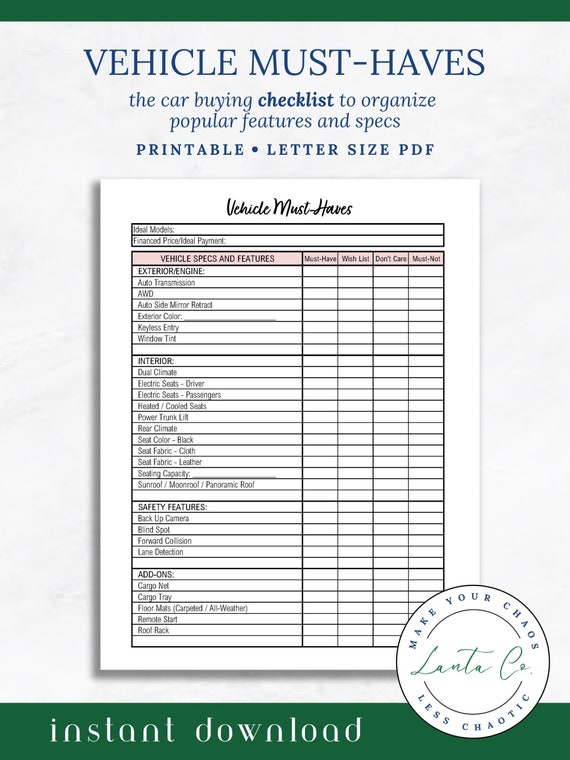CPOpen: Your Gateway to Current Affairs
Stay updated with the latest trends and insights across various topics.
Don't Get Taken for a Ride: Smart Tips for Car Buyers
Unlock the secrets to buying a car without getting ripped off! Discover smart tips to save money and drive away happy.
Top 10 Red Flags to Watch for When Buying a Used Car
When it comes to purchasing a used car, knowing the right red flags to watch for can save you from making a costly mistake. One of the first things to check is the vehicle's history report. This report can reveal critical information such as previous accidents, title issues, or odometer discrepancies. Additionally, it's essential to inspect the exterior and interior for signs of wear and damage. Look for mismatched paint indicating a prior repair, or signs of water damage that could suggest flooding.
Another significant red flag to consider is the car's maintenance records. If the seller cannot provide documentation of regular maintenance, it may indicate neglect, leading to expensive repairs down the line. It's also wise to listen for unusual noises during the test drive, as this could signal mechanical issues. Lastly, avoid any vehicle that feels overly eager to sell, as this could be a tactic to pressure you into buying quickly without a thorough inspection. Keep these tips in mind to ensure a smoother buying experience.

How to Negotiate the Best Price: Insider Tips for Car Buyers
Negotiating the best price for your next car is not just a skill—it's an essential part of the purchasing process. Before you even step onto the lot, do your research. Armed with knowledge about the vehicle's market value, you can confidently approach negotiations. Start by determining the invoice price and what similar models are selling for in your area. Additionally, keep in mind that timing can play a significant role in securing a better deal. Consider shopping at the end of the month or during a holiday sale when dealers are eager to meet sales targets.
Once you're ready to negotiate, remember to stay calm and assertive. Use your research to justify your price, and don't be afraid to offer a figure below what you're willing to pay. An effective strategy is to prepare a list of questions that highlight the car's weaknesses or any shortcomings that justify your offer. Also, be prepared to walk away if the deal doesn't meet your criteria. As a final tip, never reveal your maximum budget upfront; this helps maintain leverage during negotiations.
What Questions Should You Ask Before Buying a Vehicle?
When considering a vehicle purchase, it's essential to ask important questions to ensure you're making the right choice. Start by inquiring about the vehicle's history. Ask questions such as:
- What is the vehicle’s accident history?
- How many previous owners has it had?
- Is there a complete service record available?
Next, delve into the financial aspects of buying a vehicle. You should ask:
- What is the total cost of ownership including insurance, maintenance, and fuel?
- Are there financing options available, and what are the interest rates?
- What warranties are offered, and what do they cover?